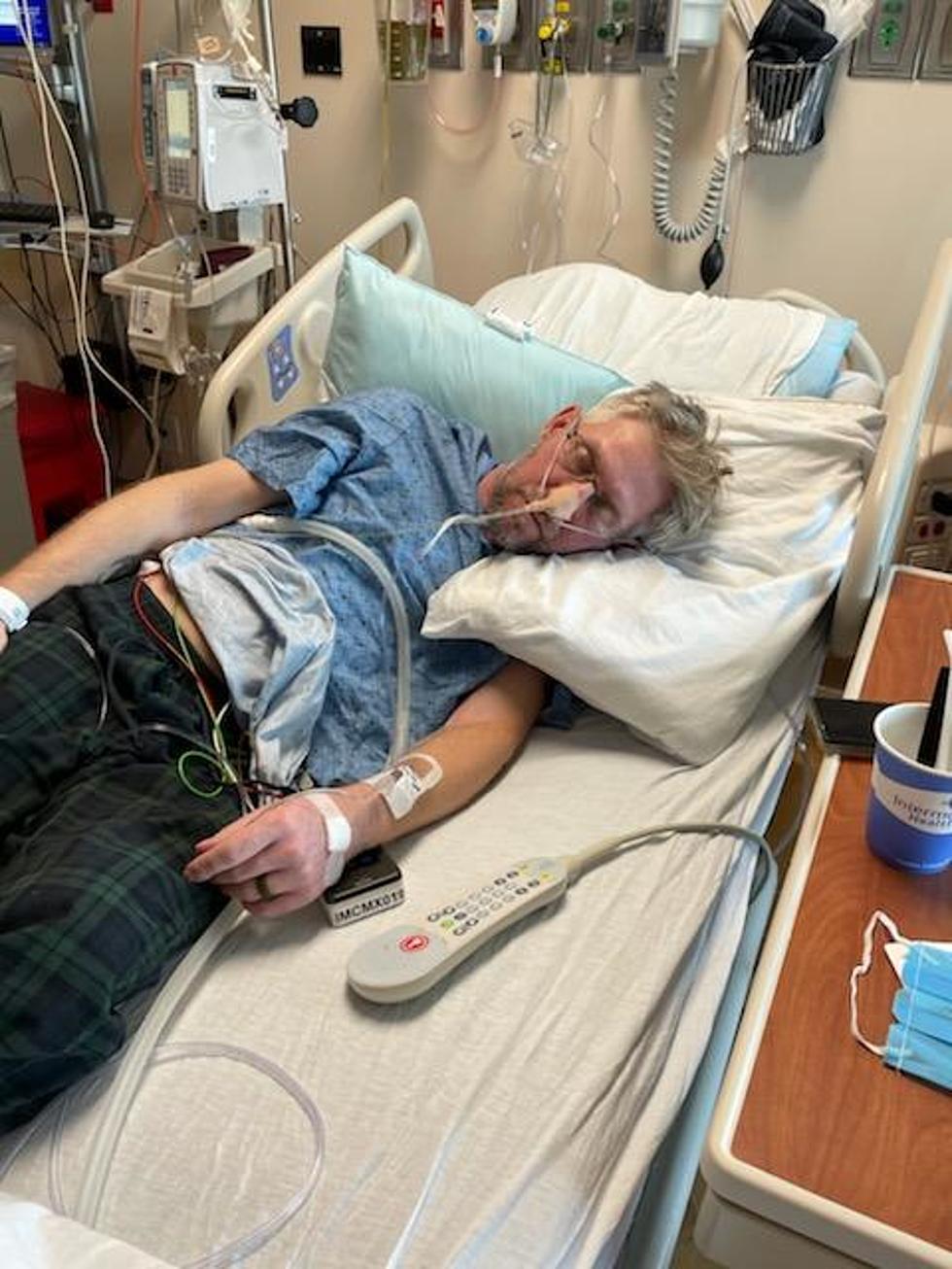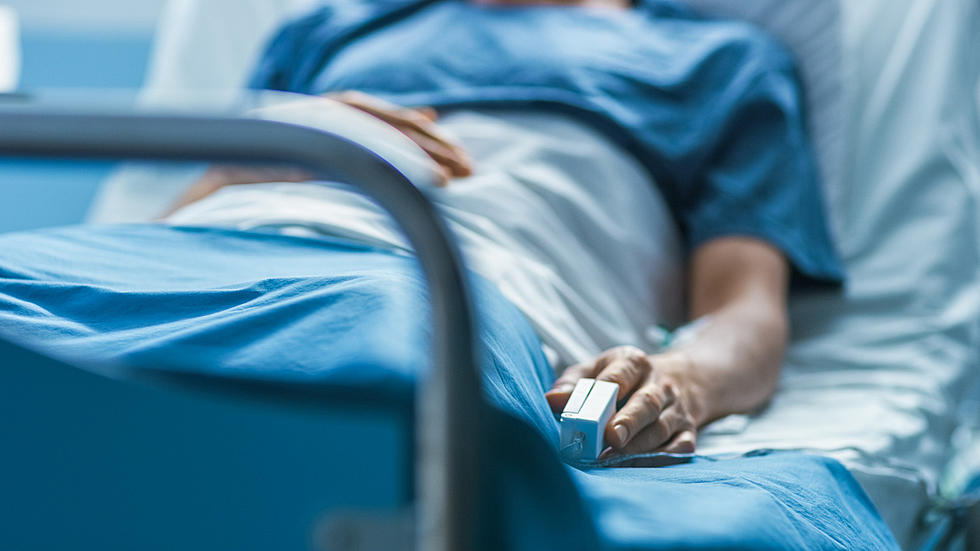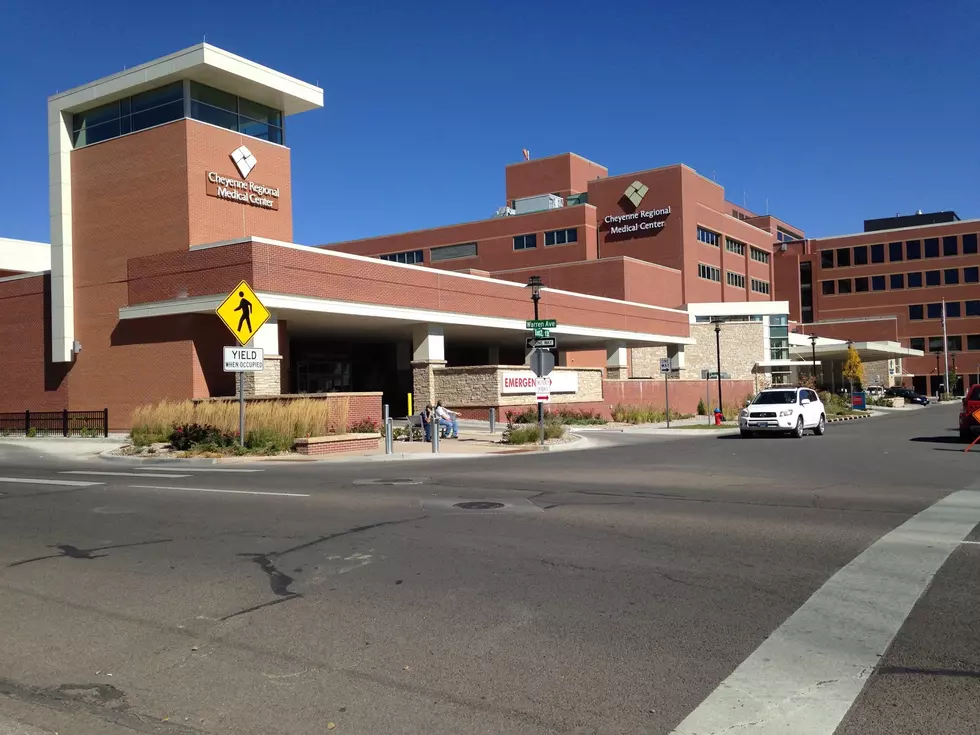
COVID-19 Leaves Casper Family Struggling to Make Ends Meet
Dawn Feraud and her husband Brandon Cradock were living a normal life, with two kids making their way through high school.

Feraud had been working for the Natrona County School District (NCSD) for five years as educational support personnel, while Cradock worked for an insulation company.
Feraud had been spending the past few years flying up to Washington to take care of her mother who had recently been diagnosed with dementia, and in August her parents had moved in with them to make it easier to care for them.
Then COVID-19 came along.
Near the beginning of the school year, Feraud's family went to a sports game for one of their kids, then Cradock started to show symptoms of COVID-19.
While Cradock tested negative several times for the virus, Feraud and her son Josh both ended up testing positive, which Feraud said led to her dealing with various COVID-19 symptoms for around a month.
"For probably about a month I really just did not sound good," Feraud said. "I pretty much stayed in my room. I was just flat on my back in bed for about eight days, and then started getting up and trying to do a little bit and move around a little bit more...I'm not a smoker, I've never done drugs, I'm a very healthy person. So when I got as sick as I did, I was truly surprised. I've had the flu before, this did not feel like the flu. It was awful. So then, I was like, I should have gotten the vaccine, that was just dumb of me."
And while that might have been the end of it, a few weeks later her husband started showing symptoms and did test positive for COVID-19.
Cradock was put in the hospital for at least a week with kidney failure and COVID-19 pneumonia, and then her mother fell down, and after going to the hospital also tested positive for COVID-19.
Because Feraud had spent the past year taking care of her mother, she didn't have any extra sick days to care for her husband and mother.
"I pretty much stayed in my room. I was just flat on my back in bed for about eight days, and then started getting up and trying to do a little bit and move around a little bit more...I'm not a smoker, I've never done drugs, I'm a very healthy person. So when I got as sick as I did, I was truly surprised.
Feraud said that her co-workers were also unable to share their sick days with her due to school policy.
Feraud eventually had to resign from her job, which caused her to lose her insurance, and by extension, her husband was also without coverage while staying in the hospital.
Cradock was eventually released from the hospital but still required consistent care from Feraud, while her mother was able to recover with fewer issues.
However, on Thanksgiving day, Cradock had to go back to the hospital and, because the doctor he was seeing was on vacation, had to be life-flighted to an ER in Salt Lake City.
Cradock was discharged from the hospital at the beginning of December, but has to subsist on nutrients provided by tube.
While the place he works at has said they'll hold onto his job until he gets better, it's looking like that won't be until the end of January.
Feraud said her husband has also had a hard time dealing with the difficulties that have come about because of the myriad of medical issues he's been experiencing.
"He's not working, he's not eating, he feels like he can't provide, he feels like he can't do the things he wants and needs to be able to do and so mentally for him that has been a struggle," Feraud said. "We have tried to continue to know that there is a light at the end of the tunnel, even if it seems like it's a long way away. For him right now, being out of the hospital and getting to be home for the holiday now with his stepchildren and his mother and father-in-law, and not having to be in a hospital bed, that has helped him. Not being able to do the things he would normally do to provide for the family and work, has really been hard on him."
Feraud said that while doctors are unsure exactly what caused the various issues her husband is dealing with, they believe COVID-19 contributed to his situation.
The doctors also said it's also possible the virus exacerbated previous weaknesses in his immune system, specifically a previous bout of pancreatitis.
"If they wouldn't have got COVID, everything would be fine...But they got COVID and it's just broken them."
Sherry Joslyn, a friend of Feraud who worked with her at the NCSD, said she reached out about Feraud's situation to help their family make it through a difficult time.
"They don't want to be seen as asking for help, or like they're begging or anything like that," Joslyn said. "But they need help. And sometimes in life, everyone's going to need help. So I just wanted to do something. I don't know how to help, and I'm not capable of financially helping them the way they need help right now. Really, they're just a family, both parents were working, they're good people raising their kids, ask mom and dad to live with them to help take care of them, and it's just kind of been a crapstorm of every single thing that could go wrong went wrong...If they wouldn't have got COVID, everything would be fine. I mean grandma would still be sick, but she's old and that's normal. But they got COVID and it's just broken them."
One thing that the experience has taught Feraud, is that the system can be difficult for a lot of people to handle.
"It also has really opened my eyes to our health system, and the fact that, there's got to be a better way to take care of people just in general," Feraud said. "People should be able to have health insurance and it's not always a choice. My husband and I are very hard working people, and he has a job that he doesn't have health insurance, and I had job that did have health insurance, but it was still pretty pricey. The district paid for some of it, but I also had to put into it...They'll care for you, but if you can't pay, we started getting phone calls about his life flight four days after his life flight, and he was still in the hospital. How are you gonna pay for this, can we set up a payment plan, we don't even know when he's going back to work, how are we supposed to do that, that is really hard to think about things like that, and there should be something there that you don't have to jump through hoops to get...I feel bad for the people that work hard and still feel like you have nothing to show for it because now you all these bills that you have to try to pay and there's no way that you're going to get them paid."
Feraud said that while many people in her family are vaccinated, she and her husband had not gotten the shot.
She said it was always something they meant to do, but because she had been flying back and forth to take care of her mother, she wasn't in one place long enough to get both shots.
When they were leaving the hospital in Salt Lake City, both Feraud and her husband got their first dose of the vaccine, and plan to get their second shot.
Answers to 25 common COVID-19 vaccine questions
More From Wake Up Wyoming









